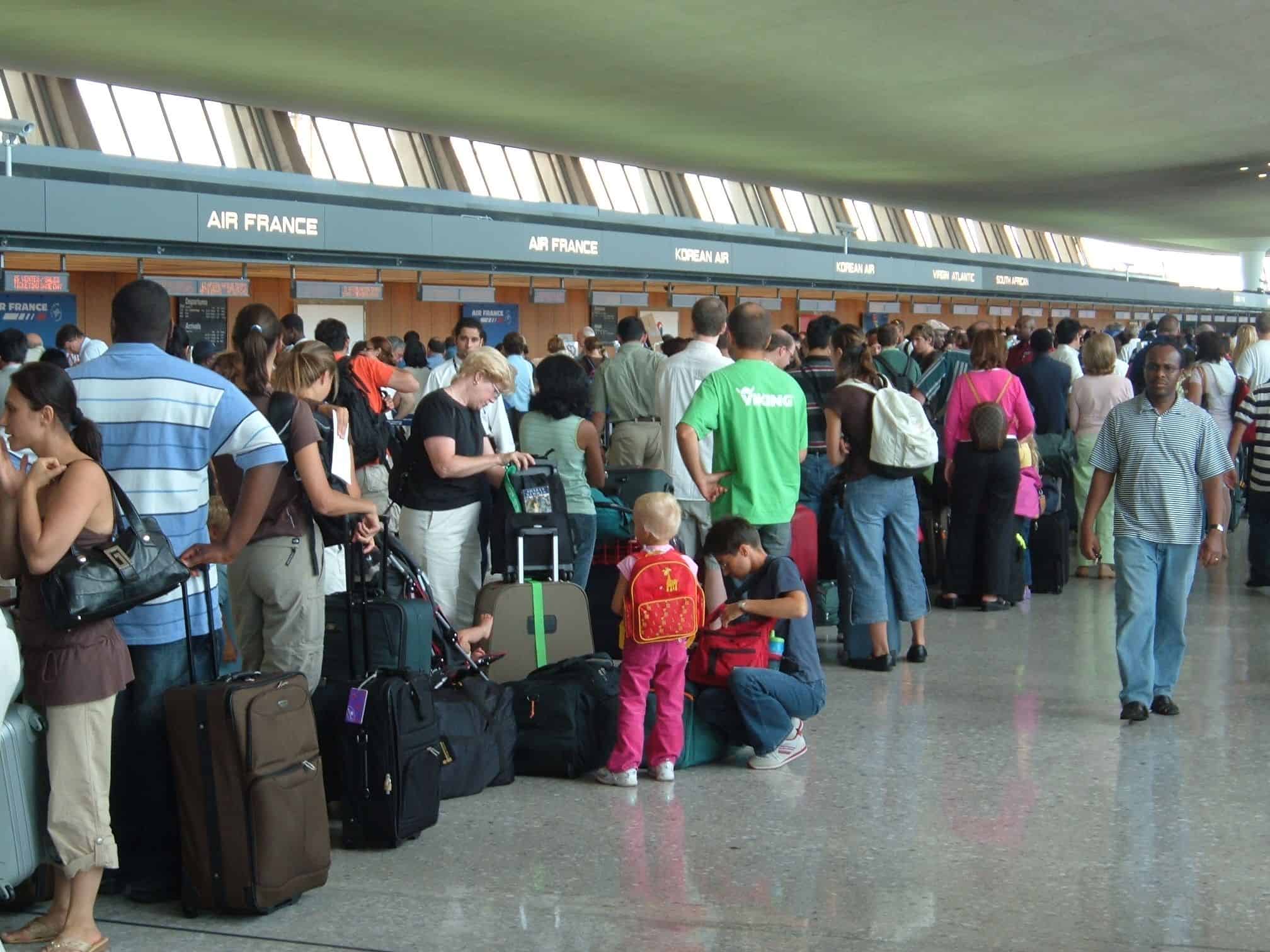Delays and cancellations are inevitable certainties in the world of air travel, where safety is always the first priority. We’ll keep sharing great tips on what to do when it happens to you in a series of articles, but today let’s look at how compensations and reimbursements are different.
We shared Sunday that Canada now has a new passenger bill of rights and that passengers will now be owed money in certain (very/too) specific cases of delays (and other situations). Maybe the US will eventually follow suit.
So is that money for compensation or reimbursement?
Those are two completely separate things:
- a financial compensation is money you are owed following an incident (like what exists already in Europe)
- a reimbursement is to cover your incurred expenses (something everyone can—and should—already have since forever)
It’s very different. The first one gives you money, it’s very simple. No receipts, no nothing. The second one reimburses you for expenses you had to make.
Since many confuse the two, here is a quick explainer, including how you can get paid to get the second one.
Compensation
This is what the main new passenger rules in Canada are all about. That did not exist outside of Europe (EU) until now.
Yes, if you’ve been following our pro tips, you already know that you can get compensation in Europe (known as EU 261).
EU 261 Reminder
Whenever you have a 3-hour delay on:
- a flight with a EU airline
- a flight departing from the EU on any airline
… you are owed up to 600 Euros (C$900) in cash compensation.
(Which you can combine with the reimbursement below of course).
EU 261 is actually really simple: there is a free service that does it for you (and takes a fee if it succeeds at getting you money) for those who prefer convenience over money, but it really isn’t necessary. Like anything in the world of travel, doing it yourself means more money for you, and it’s very easy, I just did it in June.
I sent an email to the airline through their website with my personal info and flight info and claimed my compensation due under EU 261, and they wired me 400 Euros within a month without an issue (it was a shorter intra-Europe flight, so not 600 Euros like for transatlantic flights).
By the way, that was on LOT Polish Airlines, a “legacy” and “full-service” airline, like most of my flight delays, so please stop believing the myth that ultra low-cost carriers are less reliable. I won’t say more, I’ll have an article on the topic soon.
And also, I had booked this cancelled flight on a smaller online booking website that are unknown but often have the same flights for less and seem to scare everyone… and it didn’t change a thing. I wrote directly to the airline; it’s a legal obligation for them to compensate you, no matter where you bought the ticket.
In fact, the booking website I used even emailed me to reminf me that since my flight was cancelled, I was due 250 Euros (they got the amount wrong, I’ll explain that tip in a post soon). One thing is for sure: the airline would not have reminded you (they don’t want you to know).
Here are the full EU 261 compensations, we’ll share an in-depth guide soon:
| Flight Distance | Compensation Owed |
|---|---|
| 1,500 kilometers or less | 250 € |
| 1,501 - 3,500 kilometers | 400 € |
| 3,501 or more kilometeres | 600 € |
New Canadian Rules
So Canada joins the EU with cash compensation rules (although they are incredibly weaker as I explained Sunday). It’s almost ridiculous.
It’s money that airlines will have to pay you directly. As I said in the “context reminder” part at the end of that post, money will not magically appear and airlines won’t just make less money: airlines will pass these costs on to the entirety of consumers so that a very small minority can get compensation.
But they expect to be just a few dollars more on each ticket (not like Canadian airport taxes, among the worst in the world). And there is some positive: some will get cash when delayed (and in other situations).
Personally, if you want to delay me for a day but give me hundreds of dollars, I’ll take it 11 times out of 10. It’s awesome: more money to travel. Remember, $1,000 is a full month of expenses in dozens of countries if you’ve read our surprising list of 11 things in travel that you can get with just $100.
And if you’re not like be and location-independent for work, well that compensation will more than cover most of your daily incomes anyway. And it’s not like you can do anything about the delay anyway (well, almost… see next articles).
Reimbursement
It’s always best to take responsibility and take matters into your own hands.
Again, it’s worth repeating because it’s so easy to get $500 for free for expenses during a delay: not paying for a flight with a travel credit card makes absolutely no sense. We will be launching our US Cards ranking soon, subscribe to our newsletter to be the first to know.
The only good reason not to do was not knowing about it, which is unfortunately very common. But we just fixed that. We are glad to help, sharing tips that save you money is what we’re passionate about. You can read the detailed article about flight delay insurance.
It’s pretty simple. It’s free insurance coverage that most good cards offer you, and it will allow you to get reimbursed for any incurred expenses due to a delay or cancellation (no matter the delay’s reason, unlike the bill of rights), with receipts as proof.
It works for hotels and meals, but also for delayed or lost baggage if you haven’t joined us on #teamcarryon yet.
It is not a compensation amount: you will only get money to refund what you had to spend. I used it again last night for a very nice hotel stay, I’ll share in a separate article to keep this one shorter (it’s almost done).
So not only is this coverage completely free, you’ll actually get paid to get it. If you choose the right cards (that’s the key… many people unfortunately apply for cards that don’t even give them hundreds of dollars in signup bonuses), you’ll get just that: signup bonuses worth hundreds of dollars.
Welcome to the wonderful world of travel rewards points.
(By the way, many people that only people with higher incomes can get these cards, but no. It sure is easier to get a lot of free travel when you earn $60,000 or more, yes, because many cards have that requirement. But it’s quite possible when earning less too. For example, the best offer in Canada right now in terms of value, the Marriott Bonvoy that gives you up to 8 free hotel nights as a welcome bonus, also has flight delay insurance and doesn’t have a minimum income requirement. If you prefer a simpler travel credit, the Scotiabank Gold offers the flight delay insurance and only requires $12,000 in annual income and gives you a welcome bonus worth $140 net.)
We’ll have a lot more to share, including a revamped and more exhaustive credit card ranking (to better help you choose); a beginners’ course video series to introduce you to the basics that will earn you easily over $1,000 a year in free travel, as I have been earning myself for the past 10 years; and much more.
In the meantime, the most important thing is to keep an open mind because it will be counterintuitive and go against everything you think you know about credit cards, as that’s probably all wrong. Wait for our course, but if not at least know that the #1 mistake people make is canceling their old cards when opening new ones.
That is very bad. We’ll tell you more very soon.
Want to get our pro tips?




